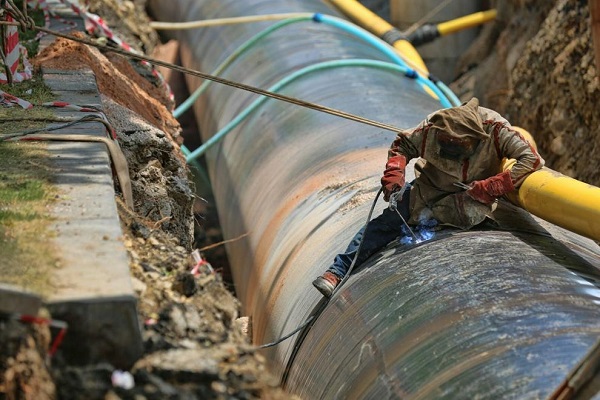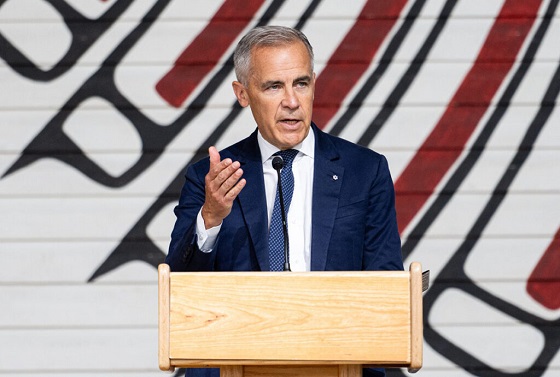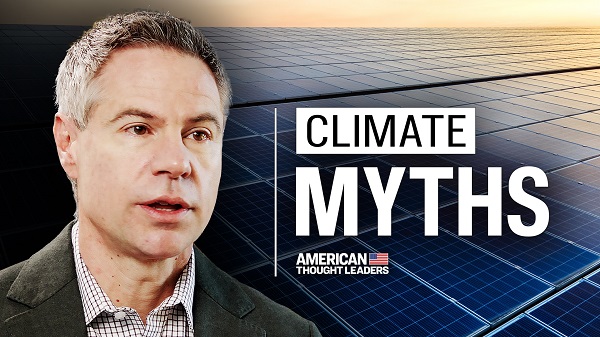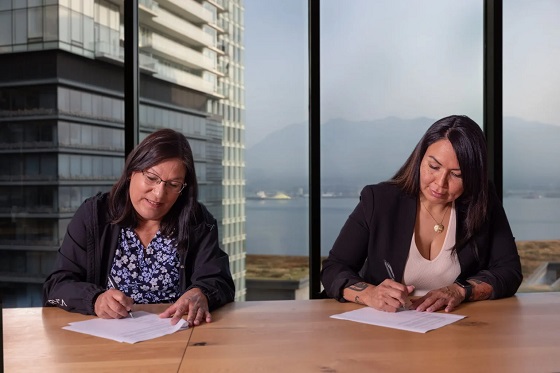Energy
Trial underway in energy company’s lawsuit against Greenpeace

From The Center Square
A trial is underway in North Dakota in a lawsuit against Greenpeace over its support for protests of the Dakota Access Pipeline.
Filed by Texas-based Energy Transfer, the lawsuit alleges Greenpeace in 2016 engaged in or supported unlawful behavior by protesters of the pipeline, while also spreading false claims about it. Greenpeace, according to Energy Transfer, spread falsehoods about the pipeline and conspired to escalate what were small, peaceful protests illegal activity that halted the project in 2016.
Energy Transfer – which is seeking hundreds of millions of dollars in damages – claims the alleged actions caused more than $100 million in financial difficulties for the pipeline.
Greenpeace denies any wrongdoing, arguing the case is about Americans’ First Amendments rights to free speech and to peacefully protest, and about corporations trying to silence critics.
Energy Transfer told The Center Square that its lawsuit “is about recovering damages for the harm Greenpeace caused” the company.
“It is not about free speech,” Energy Transfer said in an emailed statement to The Center Square. “Their organizing, funding, and encouraging the unlawful destruction of property and dissemination of misinformation goes well beyond the exercise of free speech. We look forward to proving our case and we trust the North Dakota legal system to do that.”
Last week, Greenpeace filed for a change of venue, claiming that the environmental group may not get a fair trial in Morton County, where the trial is being held.
“The Greenpeace defendants have said from the start of this case that it should be heard away from where the events happened,” said Daniel Simons, senior legal counsel for Greenpeace, in another statement emailed to The Center Square. “After three motions for a venue change were refused, we now feel compelled to ask the Supreme Court of North Dakota to relieve the local community from the burden of this case and ensure the fairness of the trial cannot be questioned.”
The pipeline was completed in 2017 after several months of delays.
Greenpeace has voiced concerns about the environmental impacts that the Dakota Access Pipeline will have in areas where it is installed. Energy Transfer/Dakota Access Pipeline says that, among other things, safety is its top priority and that it is committed to being a good neighbor, business partner, and valued member of local communities that the energy company says will benefit economically.
Alberta
How economic corridors could shape a stronger Canadian future

Ship containers are stacked at the Panama Canal Balboa port in Panama City, Saturday, Sept. 20, 2025. The Panama Canals is one of the most significant trade infrastructure projects ever built. CP Images photo
From the Canadian Energy Centre
Q&A with Gary Mar, CEO of the Canada West Foundation
Building a stronger Canadian economy depends as much on how we move goods as on what we produce.
Gary Mar, CEO of the Canada West Foundation, says economic corridors — the networks that connect producers, ports and markets — are central to the nation-building projects Canada hopes to realize.
He spoke with CEC about how these corridors work and what needs to change to make more of them a reality.
CEC: What is an economic corridor, and how does it function?
Gary Mar: An economic corridor is a major artery connecting economic actors within a larger system.
Consider the road, rail and pipeline infrastructure connecting B.C. to the rest of Western Canada. This infrastructure is an important economic corridor facilitating the movement of goods, services and people within the country, but it’s also part of the economic corridor connecting western producers and Asian markets.
Economic corridors primarily consist of physical infrastructure and often combine different modes of transportation and facilities to assist the movement of many kinds of goods.
They also include social infrastructure such as policies that facilitate the easy movement of goods like trade agreements and standardized truck weights.
The fundamental purpose of an economic corridor is to make it easier to transport goods. Ultimately, if you can’t move it, you can’t sell it. And if you can’t sell it, you can’t grow your economy.
CEC: Which resources make the strongest case for transport through economic corridors, and why?
Gary Mar: Economic corridors usually move many different types of goods.
Bulk commodities are particularly dependent on economic corridors because of the large volumes that need to be transported.
Some of Canada’s most valuable commodities include oil and gas, agricultural commodities such as wheat and canola, and minerals such as potash.
CEC: How are the benefits of an economic corridor measured?
Gary Mar: The benefits of economic corridors are often measured via trade flows.
For example, the upcoming Roberts Bank Terminal 2 in the Port of Vancouver will increase container trade capacity on Canada’s west coast by more than 30 per cent, enabling the trade of $100 billion in goods annually, primarily to Asian markets.
Corridors can also help make Canadian goods more competitive, increasing profits and market share across numerous industries. Corridors can also decrease the costs of imported goods for Canadian consumers.
For example, after the completion of the Trans Mountain Expansion in May 2024 the price differential between Western Canada Select and West Texas Intermediate narrowed by about US$8 per barrel in part due to increased competition for Canadian oil.
This boosted total industry profits by about 10 per cent, and increased corporate tax revenues to provincial and federal governments by about $3 billion in the pipeline’s first year of operation.
CEC: Where are the most successful examples of these around the world?
Gary Mar: That depends how you define success. The economic corridors transporting the highest value of goods are those used by global superpowers, such as the NAFTA highway that facilitates trade across Canada, the United States and Mexico.
The Suez and Panama canals are two of the most significant trade infrastructure projects ever built, facilitating 12 per cent and five per cent of global trade, respectively. Their success is based on their unique geography.
Canada’s Asia-Pacific Gateway, a coordinated system of ports, rail lines, roads, and border crossings, primarily in B.C., was a highly successful initiative that contributed to a 48 per cent increase in merchandise trade with Asia from $44 million in 2006 to $65 million in 2015.
China’s Belt and Road initiative to develop trade infrastructure in other countries is already transforming global trade. But the project is as much about extending Chinese influence as it is about delivering economic returns.

Piles of coal awaiting export and gantry cranes used to load and unload containers onto and from cargo ships are seen at Deltaport, in Tsawwassen, B.C., on Monday, September 9, 2024. CP Images photo
CEC: What would need to change in Canada in terms of legislation or regulation to make more economic corridors a reality?
Gary Mar: A major regulatory component of economic corridors is eliminating trade barriers.
The federal Free Trade and Labour Mobility in Canada Act is a good start, but more needs to be done at the provincial level to facilitate more internal trade.
Other barriers require coordinated regulatory action, such as harmonizing weight restrictions and road bans to streamline trucking.
By taking a systems-level perspective – convening a national forum where Canadian governments consistently engage on supply chains and trade corridors – we can identify bottlenecks and friction points in our existing transportation networks, and which investments would deliver the greatest return on investment.
Alberta
Mark Carney Has Failed to Make Use of the Powerful Tools at His Disposal to Get Oil Pipelines Built

From Energy Now
By Jim Warren
It can be refreshing when politicians clearly and unequivocally state their positions on important public issues. That’s what former BC premier, John Horgan, did during the 2017 BC provincial election campaign.
Horgan forthrightly announced he would use “every tool in the tool box” to stop the Trans Mountain pipeline expansion (TMX). For the next three years, Horgan stayed true to his word. Enthusiasm for the fight waned somewhat in July of 2020 when the Supreme Court foreclosed on any further delays over things like a lack of consultations with First Nations.
Of course, how one feels about frank and honest statements by politicians can depend on who is losing out. It can be less refreshing when every tool available is being employed in service of a measure you oppose. But, you at least have a better idea about what you are up against when your opponent clearly spells out where he stands.
The tool box has not been used much in support of pipelines
At this point in Mark Carney’s first year as prime minister it’s become rather obvious, he rarely employs any of the tools at his disposal in support of new oil pipelines. One might reasonably conclude that the opposite is the case—the vast powers of the Prime Minister’s Office (PMO) and the Government of Canada have been employed in opposition to any new oil pipelines to any Canadian coast.
The Liberal government has tried and failed to sell supporters of the oil industry on the idea that Bill-C5, The Building Canada Act, has paved the way for a new pipeline to Canadian tidewater. The prime minister knows Bill C-5 won’t do that.
Ninety some CEOs from Canada’s oil and pipeline sector have informed the PM that Bill C-5 by itself will do nothing to get a pipeline to any coast. They have sent letters saying this to Carney on three separate occasions since he became prime minister. One point repeatedly stressed by the CEOs as well as the Government of Alberta is that it is not possible to build a pipeline from Alberta to the West coast without the repeal of, or significant amendments to, the West Coast Tanker Ban, Bill C-48, and the Impact Assessment Act, formerly Bill C-69 (aka the No More Pipelines Bill).
Carney’s failure to address those concerns defies logic and common sense. The approval and completion of an oil pipeline from Alberta to Prince Rupert under Bill C-5, is in direct conflict with the tanker ban and would face virtually the same insurmountable barriers the Impact Assessment Act presented for previously cancelled pipeline projects. It is not logically possible for all three things to be true at the same time (i.e. Bills C-48 and C-69 remain in place and a pipeline to Prince Rupert is completed)
What possible harm could arise if the prime minister simply stated something to the effect that the boundaries of the region where oil tankers are banned under C-48 will be adjusted to accommodate pipeline projects approved under Bill C-5? You wouldn’t think saying so would remove any hide from Carney’s butt and would provide greater assurance to prospective pipeline proponents.
Wrong.
Carney will not say anything of the sort. That’s because he is more concerned about staying on the good side of the environmental activists who are among his most fervent supporters. The environmental groups leading the crusade against climate change, climate alarmed members of Carney’s caucus, and cabinet would just as soon see the tanker ban remain in place. They want Bill C-48 to serve as a trip wire to thwart projects like a revived Northern Gateway project. They would similarly balk at any tinkering with the Impact Assessment Act which might facilitate the approval and completion of such a pipeline.
Follow the money
Just follow the money. Here’s one of the many pieces of evidence we might consider. Mark Carney has been shoring up his support among anti-oil environmentalists with government cash. Among the un-budgeted expenditures announced by the government in early 2025 was the $206 million to be spent over the next five years under the auspices of the Climate Action Awareness Fund (CAAF). The funds will be used to combat the declining urgency among Canadians for combating climate change. The initial tranche of $14.4 million issued so far this year will be available to help young Canadians address climate change. It appears the principal delivery agents for CAAF funded projects will be environmental organizations, including those groups who were active in the infamous anti-Alberta oil campaigns.
In other words anti-oil environmental groups stand to be among the beneficiaries of $41.2 million per year in government largesse. This level of support is far more generous than the roughly $16.5 million, per year, Alberta’s Allan Commission reported Justin Trudeau’s government had been lavishing on anti-oil environmental groups.
No doubt the Liberals will claim the millions in CAAF funding is a wise investment as opposed to what it really is—an expensive perk for the government’s green supporters. It makes sense to expect the efforts of some of the groups being funded will be devoted to handcuffing the oil industry.
The tool box is actually wide open. It’s just not being used in support of increasing Canadian oil production, exports and revenues.
The tool box is far from empty
The bully pulpit available to the prime minister’s office (PMO) may indeed be far less influential than the one available to a US president. Nevertheless, a clear and unequivocal statement by the nation’s prime minister in support of building a new pipeline to the coast, under reasonable approval requirements, would go a long way toward encouraging potential proponents and reducing public angst and anger in the oil producing provinces.
Canada’s prime ministers have near Trumpian powers at their disposal should they choose to use them. The Justin Trudeau Liberals used the heavy hand of the Emergencies Act to stifle horn honking in Ottawa. Sure, the courts said using the Act in that instance was an overreach on the part of the government, but nobody in government was penalized for imposing it.
If the Emergencies Act isn’t enough to bulldoze a pipeline through to the coast the government can dust off the “peace, order and good government,” powers assigned to Ottawa under Section 91 of the Constitution. And let’s not forget the notwithstanding clause—available to stifle spurious lawsuits claiming that a pipeline is offending someone’s rights.
Admittedly, making use of those two options sounds pretty silly. However, it was Carney himself who suggested he was prepared to do something along these lines on one of the two or three occasions when he slipped up and gave people the impression he would back a pipeline. When campaigning in Kelowna last winter the prime minister said he would use all the powers available to the federal government to get one built. Since then he has backtracked, given Quebec a veto over pipelines to the East coast, and indicated any effort to get a new pipeline approved would require a national consensus and be subject to legislation and regulatory checks that would be extremely difficult if not impossible to meet.
Mark Carney is no John Horgan
Clearly, Mark Carney is no John Horgan. Our prime minister continues to dissemble, obfuscate and change the subject when it comes to getting behind a pipeline that would represent the most economically significant, nation building project capable of producing huge revenues within a relatively short period of time.
The recent federal budget did little to increase the possibility of getting a new export pipeline anytime soon. The conventional energy sector has been facing government barriers to growth in investments, production and exports for over a decade now. It is true the budget announced the elimination of one of those growth killing measures, the emissions cap. And the Liberals deigned to return free speech to those who support oil and gas. Saying something positive about conventional energy firms’ efforts on behalf of environmental sustainability will cease to be deemed illegal greenwashing. However, those positive changes still leave several other equally harmful policies in place.
The budget anticipates a huge increase in private sector investment in response to a package of uninspiring policy tweaks and sugar-coated forecasts. There is little, if anything, in the budget to justify its excessively optimistic predictions. On the other hand, the budget announced that carbon capture projects will not count toward emissions reduction credits if the CO2 will be used for enhanced oil recovery. This will be a bane to CO2 capture efforts in the oil sands and potentially gives the federal government another reason to stifle growth in production and exports.
The flight of investment during the Liberal years owes much to the lack of confidence generated by policies like Bills C-48 and C-69. Doing something to limit the investment killing effects of those two pieces of legislation would cost relatively little, generate billions in oil export revenue, and help restore investor confidence.
If Carney has actually decided there will be no new oil pipeline to the West coast, at some point in the near future that reality will catch up with him. Remaining elusive about pipelines today may help the Liberals should there be a snap election. But, it will do little to advance national unity and is likely to boost the independence vote in Alberta’s referendum.
Here we go again. On Friday November 7 the prime minister told attendees at Canadian Club event in Toronto not to worry the long sought pipeline “was going to happen.”
Pardon me if I’m not convinced. Over the previous three months the liberals clearly acted as though becoming an energy super power could happen without increasing oil production and exports.
-

 Digital ID2 days ago
Digital ID2 days agoCanada moves forward with digital identification for federal benefits seekers
-

 espionage1 day ago
espionage1 day agoChinese-Owned Trailer Park Beside U.S. Stealth Bomber Base Linked to Alleged Vancouver Repression Case
-

 Alberta2 days ago
Alberta2 days agoSchool defunding petition in Alberta is a warning to parents
-

 Business2 days ago
Business2 days agoLiberals refuse to disclose the amount of taxpayer dollars headed to LGBT projects in foreign countries
-

 Daily Caller1 day ago
Daily Caller1 day agoLaura Ingraham Presses Trump On Allowing Flood Of Chinese Students Into US
-

 Crime1 day ago
Crime1 day agoCBSA Bust Uncovers Mexican Cartel Network in Montreal High-Rise, Moving Hundreds Across Canada-U.S. Border
-

 Daily Caller1 day ago
Daily Caller1 day agoUS Nuclear Bomber Fleet Shares Fence With Trailer Park Linked To Chinese Intel-Tied Fraudster
-

 Environment1 day ago
Environment1 day agoThe Myths We’re Told About Climate Change | Michael Shellenberger






